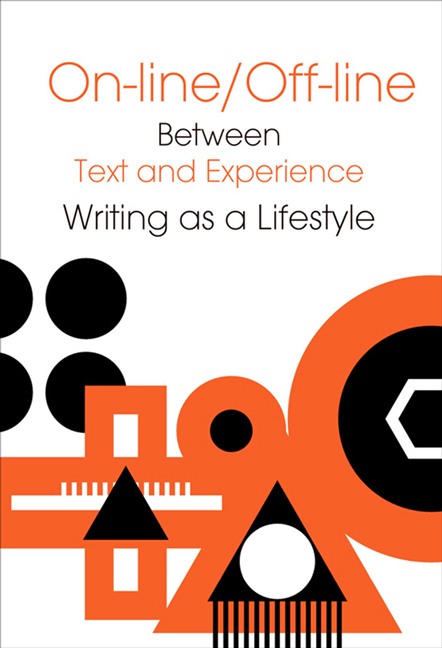Book contents
- Frontmatter
- Contents
- Editors’ Introduction
- ON-LINE/ OFF-LINE
- LITERATURE AND CONVERGENCE
- Poetics in the Age of Convergence
- Convergence and Communication: Genre Analysis of the websites of Polish Writers
- Towards a Generic Analysis of the Microblog (Based on a Study of Twitter)
- How Does the Hybrid Work of Art Exist?
- Liberature in Relation to the Reconfiguration of Aisthesis
- Literature in/of the City – Introductory Comments
- Literary Studies, History and Popular Culture – the Spaces of Convergence
- Afterpop: the Almost Perfect Convergence
- Transcultural Convergence? Polish Poets and Artists and the Oriental Verbo-visuality
- From an E-narrative Poem towards an Interactive Work of Art. Media Convergence Illustrated with DOWN by Zenon Fajfer and The Surprising Spiral by Ken Feingold
Afterpop: the Almost Perfect Convergence
from LITERATURE AND CONVERGENCE
Published online by Cambridge University Press: 12 January 2018
- Frontmatter
- Contents
- Editors’ Introduction
- ON-LINE/ OFF-LINE
- LITERATURE AND CONVERGENCE
- Poetics in the Age of Convergence
- Convergence and Communication: Genre Analysis of the websites of Polish Writers
- Towards a Generic Analysis of the Microblog (Based on a Study of Twitter)
- How Does the Hybrid Work of Art Exist?
- Liberature in Relation to the Reconfiguration of Aisthesis
- Literature in/of the City – Introductory Comments
- Literary Studies, History and Popular Culture – the Spaces of Convergence
- Afterpop: the Almost Perfect Convergence
- Transcultural Convergence? Polish Poets and Artists and the Oriental Verbo-visuality
- From an E-narrative Poem towards an Interactive Work of Art. Media Convergence Illustrated with DOWN by Zenon Fajfer and The Surprising Spiral by Ken Feingold
Summary
Abstract
This paper focuses on one of the newest notions in Spanish literary theory created by Eloy Fernández Porta in his work Afterpop. La literatura de la implosion mediatica (2007).The the-orist reaches for the aesthetical accomplishments of postmodernism, avant-pop and cy-berpunk in order to analyze them in the context of the new artistic mentality from the beginnings of XXI century. Juggling a multitude of literary techniques and names from various cultural backgrounds such as W.S.Burroughs, Julián Ríos, David Foster Wallace, David Cronenberg or Michael Haneke, Fernández Porta searches for new criteria and new methods of recognizing the complexity and insights of intermediatic, multifaceted and polysemic, implosive “new literature”.
Key words: afterpop, polysemic new literature, intermediatic texts, Eloy Fernández Porta
An error has been detected in your consciousness.
All source-code is corrupt. Continue?
OK
(…)
The network is monitoring your Digital Being. Create alias?
OK
MARK AMERIKA, OK Texts
The notion of the Afterpop may seem to some as kind of a terminological provocationl as, for instance, the postpostmodernism of Jürgen Habermas, yet, whilst used as a powerful tool in the erudite discourse of Eloy Fernán-dez Porta (born in 1974), it becomes a handy metaphor and etiquette for the recent tendencies in the contemporary narrative.One should note that the contemporary novel is considered quite frequently a synecdoche for the whole concept of literature in the framework of Porta's metaliterary reflexions.
According to his observations, in the last decades, plenty has changed in literature and its way of functioning in the society: the widened scope of the impact of the mass media, both verbal and non-verbal, enabled the transition from the postmodern “hypertext” to its latest upgraded version: “intermedial text”. The changes went quite deep, since:
[The] unprecedented expansion of culture, made possible specifically by the ex-ponential growth of technology, has changed the contours of the world: pop cul-ture has not only displaced nature and “colonized” the physical space of nearly every country on earth, but (just as important) it has also begun to colonize even those inner, subjective realms that nearly everyone once believed were inviolable, such as people's memories, sexual desires, their unconsciousness.
- Type
- Chapter
- Information
- On-line/Off-lineBetween Text and Experience: Writing as a Lifestyle, pp. 321 - 338Publisher: Jagiellonian University PressPrint publication year: 2016

